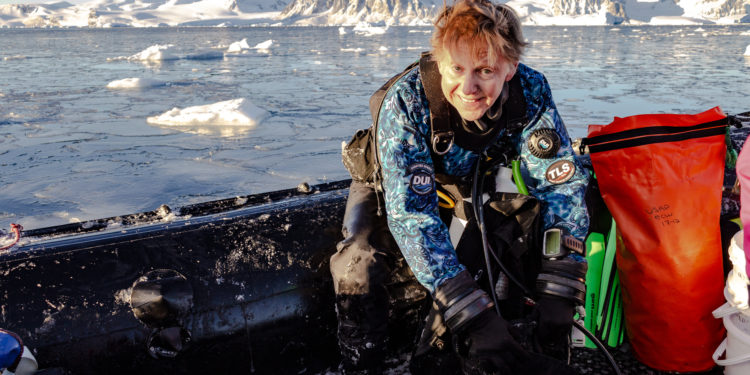By Ashleigh Jones
Exploring the deep, frigid waters of Antarctica is not a new experience for marine biologist, Maggie Amsler.
The University of Alabama at Birmingham professor has performed research in Antarctica since the 1980s, with most trips spent at Anvers Island’s Palmer Station on the Antarctic Peninsula.
This seasoned scientist gave a presentation to Samford students and faculty on Thursday, Oct. 27 about the research she and her colleagues perform on the world’s southernmost continent.
As Amsler gave her presentation, titled “Antarctic Marine Ecology: a crustacean perspective,” she spoke about various invertebrate animals that inhabit the Antarctic waters.
One of the animals she talked about, Antarctic krill (Euphausia superba), are some of the most abundant creatures found only in the Southern Ocean.
“I think they’re called superba because they’re the most superb invertebrate in the world in my opinion,” Amsler said. “They just have a full suite of really superb adaptations that have allowed them to be so successful in this crazy environment.”
Hunted by penguins, crabeater seals and giant humpback whales, krill encounter a variety of predators. Fortunately for the krill, they can reproduce very quickly. During her research in Antarctica, Amsler worked in a lab studying the krills’ reproductive physiology. She found that female krill can produce eggs up to seven times throughout the summer.
“For one female, you got the potential for 28,000 offspring,” Amsler said.
On a special expedition, Amsler was invited to embark on a submersible cruise to help produce a documentary on the first submersible exploration of Antarctica, which was later aired by National Geographic. On one of her dives, she saw something incredible.
“One of my eight dives, we were engulfed by a swarm of krill. We were at 450 meters. There were humpback whales feeding right above us and we thought ‘Is this going to be a Jonah moment?’” Amsler said.
In that moment, Amsler said she thought of her undergraduate advisor, Mary Alice McWhinnie, who was one of the first women to perform research in Antarctica. Her advisor was a mentor who greatly influenced Amsler’s career in Antarctic research.
“I hope someday, all of you undergrads, no matter what profession you end up in, you can look back and say ‘That was the person who made my life what it is,’” Amsler said.
Amsler also talked about the rising water and air temperatures in Antarctica, and how important it is to try and conserve the environment.
“Antarctica matters. What happens in Antarctica is going to start happening everywhere,” Amsler said. “The more we know about our environment, the better stewards we can be of it.”






